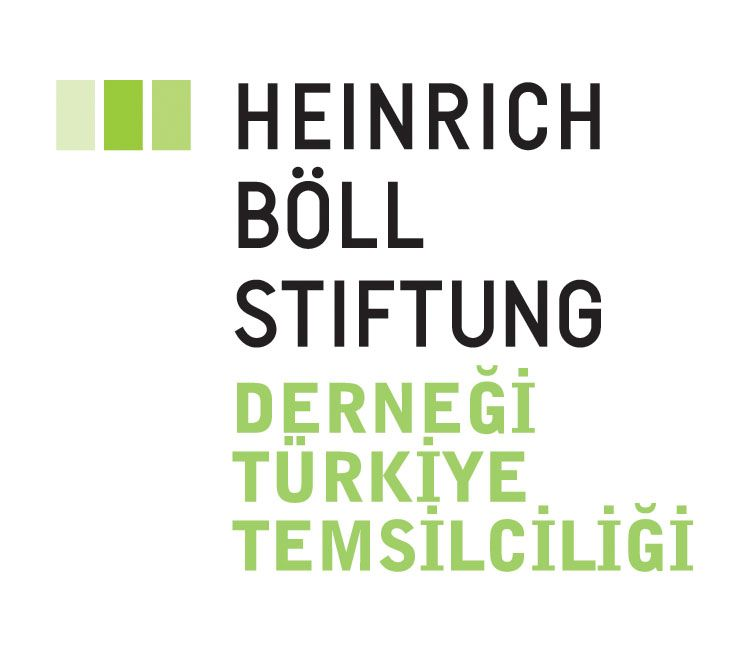
The Turkish Ministry of Foreign Affairs has self-confidently and proudly announced under the impressive title “Türkiye’s Enterprising And Humanitarian Foreign Policy” that “Turkish Foreign Policy aims to protect Türkiye’s interests in a volatile regional and global environment while also shaping conditions for sustainable peace and development in our neighborhood and beyond”. A critical analysis of what Türkiye’s interests have been and could be is worthy, particularly on global political economy.
The World Economic Forum listed ten points to know about the global economy on 13 October 2022, with reference to geo-economics. Among others, they revealed that they would prefer more globalization. The first on the list was to hopefully protect the most vulnerable in the new economic reality, with the striking title “cost of living bites”. The rest was; rising global interest rates, recession, foreign currency reserves, central bank digital currencies, gig economy, measures of growth other than bad old GDP, debt default, yield curve, and bearish market. Each of them can be analyzed as a geo-economic challenge indeed.
In the same manner, a group of writers, including the Managing Director of the IMF Kristalina Georgieva, published in the IMF blog a concern and roadmap to “Resist Geoeconomic Fragmentation”, with a clear and robust argument: “Only international cooperation can address urgent global issues such as fixing shortages of food and other products, eliminating barriers to growth, and saving our climate.” Each of these is also a geo-economic challenge.
It seems productive to outline some definitions of geo-economy through the elements to guide this analysis on challenges and policies. As early as 1990, it was noted that geo-economics has always been an essential aspect of international life, and its importance relative to geopolitics was discussed. A mainstream understanding poses it “as the interplay of international economics, geopolitics, and strategy”. Similarly, it is said to be about the geostrategic use of economic power, such as the economic instruments of foreign policy. There is an implicit or explicit tendency in the mainstream to regard geo-economy as a state-centric or economic nationalist alternative to the liberal economy. An example has been thereby presented as the Belt and Road Initiative as an “ambitious Chinese geo-economic strategy” combining economic factors with geopolitical ambitions. Accordingly, the Chinese (single-party regime) elite has been motivated by geopolitical and geo-security concerns to use the geo-economics approach. Within this rather state-centric (and still self-condemning to geopolitical) approaches, a suggestion in the example of Germany is to maintain the international production chain necessary to the German export economy and the security of the supply of raw materials as a defense strategy of a geo-economic power.
A critical perspective, preferably rather global than the state-centric mainstream, defined geo-economics through “economic remaking of territory, and to the market imperatives and cross-border geographical imaginations of contemporary globalization in particular”. Within this framework, some elements apt to a critical understanding can also be cited in the mainstream approaches, such as the correlation between economic development and security objectives and the argument that geo-economics is to provide the best possible employment for the most significant proportion of the population. We can now discuss Turkish foreign policy within this framework.
The peace and development that Turkish foreign policy has officially aspired to shape in its neighborhood and beyond are bound to geo-economy. The salient question is what the Turkish approach is. One can observe it, for instance, through the Turkish Ministry of Trade’s presentation of the economic outlook as of 10 October 2022: Increasing exports in terms of volume, markets, and value-added. Türkiye’s average export distance remains below the world average since about two-thirds of Türkiye’s exports are to geographically closer countries; leading export partners in the top 5 are Germany, USA, Britain, Italy, and Iraq in 2021 (Russia was added in 2022, most probably due to sanctions it was imposed); insistent invitation to high value-added innovation and technology-focused investments; all these are manifest to balance the current account deficit that the country has desperately suffered from. All in all, the elephant in the room is clear to many; increasing deficiencies of Turkish state capacity prevents effective policy-making from institutionalizing the developmental mentality, such as in the research and development sector that is so ardently desired. After all, it is concluded that there can be no successful geo-economic action without determined industrialists and effective bureaucracy.
Turkish capital has been on the same page: They want to increase exports through diversification, particularly by increasing the volume with Asia, in addition to and for decreasing the dependence on the European market. That is also to reduce the capital deficit and provide its in-flow. For example, the Regional Comprehensive Economic Partnership countries of Asia-Pacific constitute 18% of Turkish imports and only 4 % of its exports. Moreover, Turkish capital conceives that problems/dynamics of the global economy can be constructive for the Turkish economy to become a hub of production due to proximity to Europe, geopolitical position, better industry than counterparts around, robust banking system, etc. They indeed underline the critical reforms of the glorious and happy liberal days in the 2000s with the clear data that the Turkish economy has risen from 0,6% of the world economy in 2002 to %1,2 in 2013 while retreating to 0,8% recently. One geo-economic challenge to be noted here, which has been underestimated, is that the Chinese Belt and Road Initiative is likely to threaten Turkish exports in the European markets by decreasing the advantage of proximity and continuity.
Considering labor’s position to Turkish political economy and geo-economy, it was observed that some have consistently and insistently defended the nation-state for a welfare regime against the neo-liberal political economy and that -controversially enough- the European Union seemed plausible in this respect. Turkish capital wants profit maximization through increasing the volume and diversity of exports, while Turkish labor wants social security at home, similar to European standards.
To observe thus the overall approaches in society, a study earlier to the recent wave of nationalism has exposed that the Turkish public has generally been optimistic about the gradual opening of the Turkish economy on the grounds of the growing availability of foreign products, including culture and travel opportunities, certainly depending on education and income levels, gender, and economic self-interest. Turkish society has not been any less fragmented than many others, and political-economic standpoint and thus approach towards geo-economy succumbs to social class, identity, and personal preferences. Considering that the Turkish mainstream and middle class have been seriously eroded, the question remains as to whom the foreign policy has become more burning.
Ümit Boyner has put forward the crux of the matter, the then chairperson of the Turkish Industry and Business Association at the beginning of 2010s: how shall Türkiye continue its reform process and take place in global economic architecture; become like a bigger Finland with more investments to education, innovation, and research and development [and palpably, social security in the democratic rule of law], or like a more diminutive -centralist and authoritarian- China with a political economy of lower living standards, particularly on human capital, product diversification, and regional development? Recent years could not deliver well on these. The result has been an oscillation of Turkish foreign policy between the West (read USA and EU since the world is round) and Russia-China, which ended up with the worst of two worlds.
All this posed some observations and suggestions that can be simply cited. First, the Turkish economic and political elite wants to continue export-led economic growth and decrease the exhausting current account balance problem that was only aggravated by this economic growth in the recent decade. This continuation requires the diversification of both exports and markets. Therefore, a domestic environment conducive to the improvement of human resources and the (foreign) investment in high technology is indispensable. Both certainly require a democratic rule of law. In the international environment, regionalism in Turkish foreign policy must be substantiated. This seems more plausible with a peaceful discourse than ostensibly aggressive ones: cooperation, not conflict, in the international mainstream words. To respond to the challenges mentioned regarding World Economic Forum above, improvement of human resources and investment in high technology within the democratic rule of law and peaceful regionalism seem crucial.
Second, principles are needed instead of transactions, no matter international or regional cooperation. Transactional foreign policy may seem impressive as short-term gains, particularly for politicians self-fascinated by them, yet fail to deliver structural improvements such as diversifying exports and markets and decreasing the current account deficit. Investment is needed rather than profiteering. Foreign policy, as well as life itself, is a matter of principles, not transactional gains. This means multilateralism instead of controversial combinations of bilateralism. There is no realistic alternative to the high continuous and precious European market in the Turkish export destination structure. Hence, Türkiye must always have a fruitful place in European cooperation and even integration, whatever the form is for this contentious latter. One can say that Europe has no better candidates for Turkish exports in its market.
Third, the “cost of living bites” as even the World Economic Forum elite is compelled to state, and Turkish labor seems not any different than others in succumbing to nation-state for the search of social security. Suppose nationalism is an obstacle to international cooperation. In that case, as the IMF elite desired to stress, even threatening the very elite instrumentalizing it, social security must also be a priority of world political and foreign policy. In other words, the well-being of the laboring masses must be aimed at instead of mere economic growth, as the International Labor Organization clearly and firmly put forward a century ago: “universal and lasting peace can be accomplished only if it is based on social justice.”
Ecological problems ranging from food shortages to climate can be added as a fourth related observation, encouraging the suggestion of investment in sustainability such as renewable energy and clean agriculture and industry, also to provide “sustainable peace and development in our neighborhood and beyond” in foreign policy. Moreover, the European Green Deal to diminish the ecological problems has become a challenge to Turkish exports because the industry has not been ecologically improved. However, some parts of the Turkish capital have started.
inally, the Turkish political elite’s much beloved national interest seems like the maintenance of the nationalist state. It would seem better to maintain the well-being of Turkish society coupled with a peaceful and multilateral foreign policy. If “Enterprising Foreign Policy” is for export markets, “Humanitarian Foreign Policy” should start at home. “Peace at home, peace abroad”, which has been the official motto of Turkish foreign policy since it was put forward by the founding President of the Republic, Mustafa Kemal Atatürk, in the Interwar Years, and which is gradually but increasingly restored following the oscillations of 2010s, is urgently needed both at home and abroad. This time in more substantial and thus credible ways.

Dr.Inan Ruma works at the Department of International Relations at Istanbul Bilgi University. He earned his academic degrees at METU and Paris-1 Panthéon-Sorbonne University. He worked for various periods in OSCE missions in Bosnia and Herzegovina and Kosovo. He works on Political Economy, Balkans, Russia, Eurasia and Turkish Foreign Policy which has become inevitable. He thinks that life in harmony with nature, labor and freedom are essential.
To cite this work: Inan Rüma, ” Geo-Economic Challenges Faced by Türkiye”, Panorama, Online, 20 December 2022, https://www.uikpanorama.com/blog/2022/12/20/ir/

This article has been prepared with the support provided to the International Relations Council and the Global Academy by the Heinrich Böll Stiftung Association Turkey Representative within the scope of the project titled ‘Foreign Policy for the 21st Century; Peaceful, Equitable, and Dynamic Turkey’.
Copyright@UIKPanorama. All on-line and print rights reserved. Opinions expressed in works published by the Panorama belongs to the authors alone unless otherwise stated, and do not imply endorsement by the IRCT, Global Academy, or the Editors/Editorial Board of Panorama.

